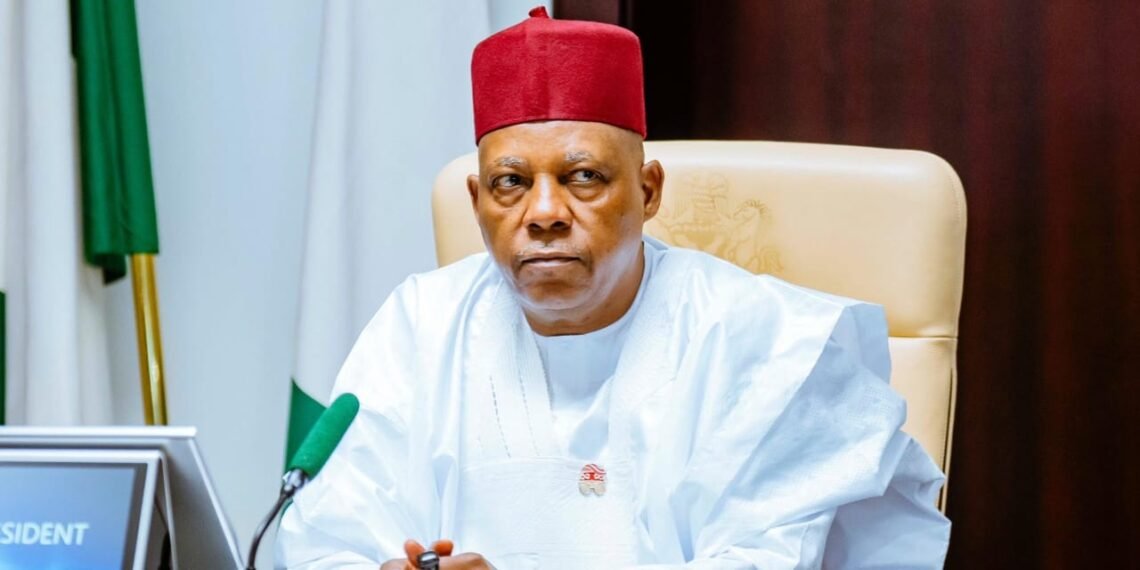Less than three months before the rollout of Nigeria’s new tax regime, the Federal Government has begun an extensive overhaul of public finance management, targeting efficiency, transparency, and digital transformation across all revenue-generating agencies.
Key highlights:
- Moves to digitise revenue system across FIRS, Customs, and NPA
- Finance Minister Edun says reforms mark “new era of accountability and transparency”
- Federal Government begins major public finance reforms
- New tax regime to take effect in January 2026
- FIRS transitions to National Revenue Service (NRS)
- Launch of Federal Treasury Receipt (FTR) and Central Billing System (CBS)
The reform package, driven by the Ministry of Finance and Coordinating Ministry of the Economy, includes a sweeping digitalisation agenda that will streamline the activities of the Federal Inland Revenue Service (FIRS), Nigeria Customs Service (NCS), and Nigerian Ports Authority (NPA) under a unified platform. The initiative is designed to block revenue leakages, expand the non-oil tax base, and reduce the cost of revenue collection.
Edun: New Era of Fiscal Accountability
Finance Minister Wale Edun described the process as the start of “a new era of transparency and accountability in Nigeria’s public finance.” He noted that the reforms will ensure every kobo due to the government is digitally tracked and reconciled, thereby safeguarding national resources and enabling increased investments in education, health, and infrastructure.
The centerpiece of the reform is the planned transformation of FIRS into the National Revenue Service (NRS) by January 2026, a new body that will consolidate and professionalise tax and revenue administration across government institutions.
Read Also:
- FG launches 90,000km Fibre Optic Network to boost internet speed, digital economy
- FG moves to ensure accurate solid minerals data, synergy with states for implementatio
- FG issues Tertiary Institutions 30 day ultimatum to account for over N600bn unused TETFund
According to the ministry, the government aims to raise Nigeria’s tax-to-GDP ratio from about 10 percent to 18 percent within three years, a move expected to align the country with the African average and reduce its dependence on debt.
Officials say the reform will not only increase revenue but also enhance fiscal governance by ensuring all funds due to the Federation Account are transparently disbursed to federal, state, and local governments.
Digital Tools for Revenue Tracking
Two major digital tools, the Federal Treasury Receipt (FTR) and the Central Billing System (CBS) are already being piloted across 10 federal agencies. These systems are part of the Revenue Optimisation and Assurance Project (REV-OP), which provides real-time monitoring, billing, and reconciliation of all government revenues.
The FTR ensures that every government-issued receipt corresponds directly to payments received, while the CBS standardises the pricing and billing of government services. Together, they are expected to close loopholes, reduce corruption, and build public trust in fiscal management.
FIRS, Customs Drive Digital Expansion
The FIRS has been at the forefront of these changes, expanding its TaxPro Max platform to allow individuals and businesses to register, file returns, and make payments online. The agency has also integrated artificial intelligence (AI) to detect income discrepancies in key sectors, helping to uncover widespread underreporting.
In 2024, the FIRS exceeded its target by collecting ₦21.6 trillion, up from ₦12.3 trillion in 2023, a 111 percent performance rate.
Similarly, the Nigerian Customs Service has introduced an end-to-end e-Customs system that automates cargo clearance, manifests, and payments. The system reduces physical contact between officers and importers, curbing corruption and improving efficiency at ports and borders.
Cutting Cost of Revenue Collection
A long-standing challenge in Nigeria’s public finance system has been the high cost of collection retained by agencies before remittance. In 2023, that figure reportedly reached ₦924.7 billion. Under the new framework, major revenue bodies including FIRS, NCS, and NUPRC have been directed to remit gross revenues directly to the treasury, thereby freeing more funds for national development projects.
Analysts say the reforms could reshape Nigeria’s fiscal future by plugging leakages, improving transparency, and ensuring that government revenues are channelled towards genuine economic growth rather than lost to inefficiency and graft.






